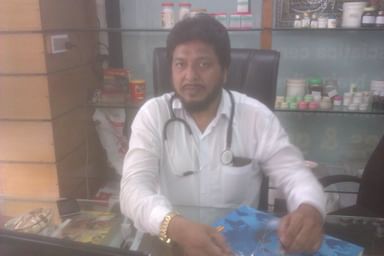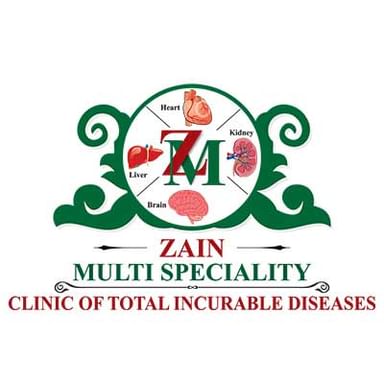Dr. Gulamnabi
Zain Ayurveda
Personal Statement
I pride myself in attending local and statewide seminars to stay current with the latest techniques, and treatment planning...read more
Doctor Information
Speciality
- Ayurvedic Doctor
Other treatment areas
- Ayurveda
- Ayurvedic Specialist
- Dermatologist
- Cardiologist
- Sexologist
- Weight Management
- Pain Management
- Dietitian/ Nutritionist
- Orthopedist
- Gastroenterologist
- Diabetologist
- Asthma Specialist
- Asthma & Allergy Condition Specialist
- Naturopathic Physician
- Nephrologist
- Allergist
- Allergist/ Immunologist
- General Physician
- Weight Management
- Urologist
- Oncologist/ Cancer Specialist
Education
- Modern Allopathic System of Medicine , Bihar University Patna , 2008
Languages spoken
- English
- Hindi
Clinic Location
Behind Vadilal Hospital, Opposite Ellisbridge Post Office, Upper Level No-27, Maharana Pratap Complex, Ashram Road
Clinic of Dr. Gulamnabi
| Clinic's Name | Fees |
|---|---|
| Zain Ayurveda | ₹ 500 |
Book Clinic Appointment with Dr. Gulamnabi
Zain Ayurveda
Question and Answers
Rupali G
male • Jan 10, 2018 • Mumbai
My sister in law is suffering from the sever pain in the forehead area nerves. Please help.
Gulamnabi
8 years ago
She is a patient of migraine she can cure only in 2 month. The blood and oxygen is not circulate properly in her brain, if blood and oxygen circulation can be normal, pr ...read full answer
Health Tips
Asthma - The Ayurvedic Approach To Treat It!
Asthma is a common disease, characterized by the inflammation of the airways. These airways are responsible for the passage of air and therefore their inflammation causes shortness of breath and extreme discomfort. Though different branches of med......read more
Boost Your Immunity With The Best Practices Of Ayurveda!
The reason why you suffer from bad health every now and then is due to your poor immune system. Whenever there is a change in weather and you are attacked by the flu virus, stop blaming the weather because it is actually your weakened immune syste......read more
6 Most Amazing Benefits Of Sesame Seeds!
Sesame seeds are considered as the oldest oilseed crops in the world. They are derived from the plant of Sesamum genus. Though minuscule in comparison to other seeds, they are extremely beneficial for your health. They are very useful in the preve......read more
4 Common Reasons Behind Psoriasis!
It is a chronic autoimmune skin disease, in which the skin cells form a mass of scales. Usually, these patches of skin, which are dry, red and itchy, occur on the skin of the back, scalp, palms, knees, elbows and around the fingernails and toenail......read more


